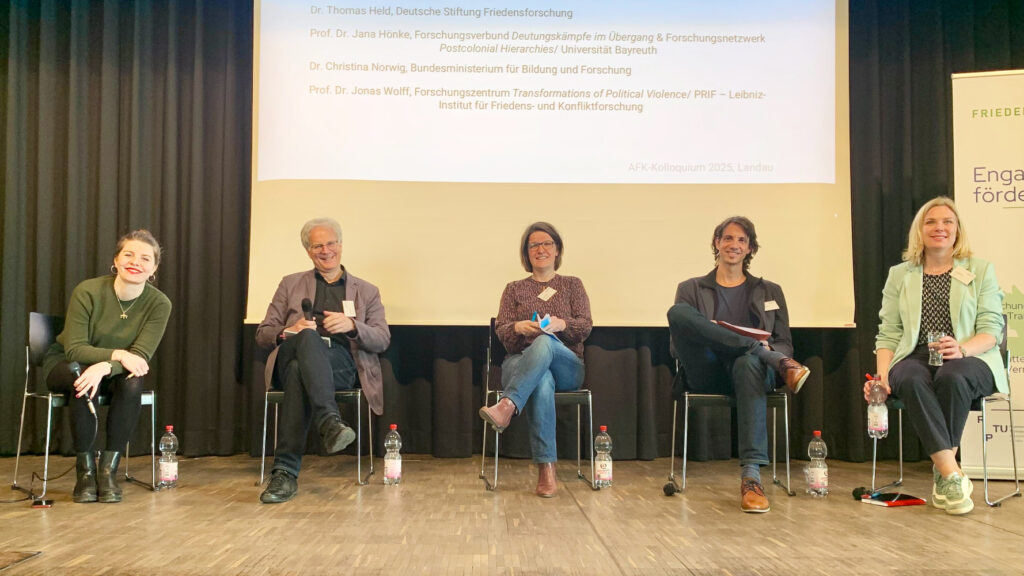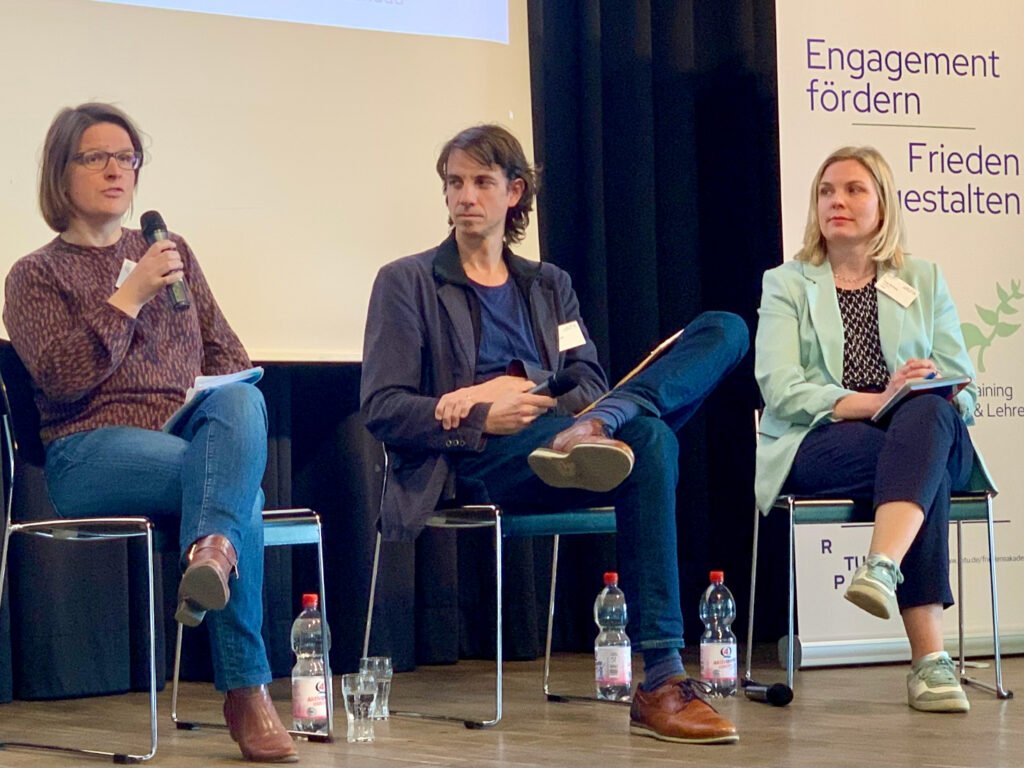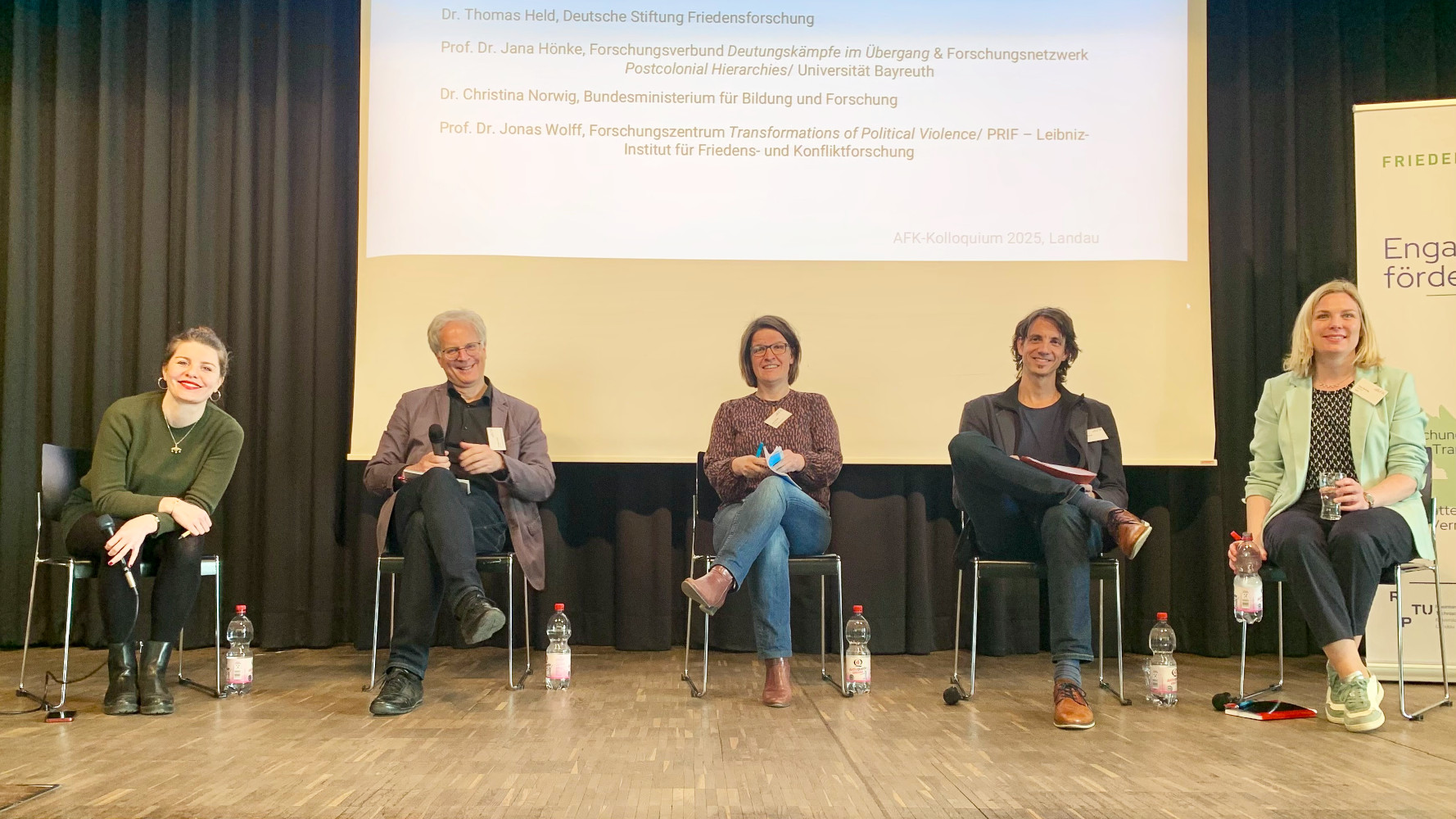Report of the roundtable discussion “Peace and Conflict Studies amidst the ‘Zeitenwende’: Which research, how funded, how communicated?”
As part of the colloquium of the German Association for Peace and Conflict Studies, AFK-Colloquium 2025, representatives of academia and research funding discussed the future of peace and conflict studies in Landau, on March 20. The event was organized in cooperation with the networks Conflicts.Meanings.Transitions, TraCe, and VesPoTec, which are funded by the Federal Ministry of Education and Research (BMBF) in the funding line ‘Strengthening Peace and Conflict Research’.
Dr. Thomas Held (German Foundation for Peace Research), Prof. Dr. Jana Hönke (University of Bayreuth), Dr. Christina Norwig (BMBF) and Prof. Dr. Jonas Wolff (PRIF) spoke on the panel. The discussion was moderated by Madita Standke-Erdmann (King’s College London/PRIF).

All panelists agreed that peace and conflict research is indispensable, especially in times of crisis. At the same time, it needs structural and long-term support in order to remain effective.
Jonas Wolff explained how the TraCe research center was able to adapt its agenda over the course of the project – for example, by placing a stronger focus on interstate wars and new transfer formats: “The thematically broad structural funding gave us the flexibility to react to political developments – that is a great advantage.”
In this regard, Jana Hönke pointed out how research in the Bavarian BMBF network Conflicts.Meanings.Transitions uses contemporary perspectives on history to understand current upheavals. She also emphasized that peace research must always be more than just security policy: “We need spaces to publicly negotiate complex relationships of violence – locally, historically informed and critically.” She referred to innovative formats such as the Bayreuth Peace Talks and the online encyclopaedia Rewriting Peace and Conflict (created as part of the “Postcolonial Hierarchies in Peace and Conflict” network, which is also funded by the BMBF), which make academic findings on hierarchies, memory culture and colonial continuities accessible to a broader public.

Both Hönke and Wolff called for better prospects for early career researchers and funding that ensures diversity, critical approaches and long-term cooperation.
Thomas Held (DSF) emphasized the role of the German Foundation for Peace Research as an open-topic initiator, but at the same time pointed out the limits of project-based funding logic: “Without long-term positions and secure infrastructures, the knowledge built up can quickly be lost again.”
Christina Norwig (BMBF) underlined the importance of the current funding line to strengthen peace and conflict research, which is based on the recommendations of the German Science and Humanities Council and aims to facilitate interdisciplinary networking, internationalization and sustainable structures. She expressed her gratitude for the diverse impulses from the community for the further development of research funding.
In the discussion, among other things, contributions from the audience critically addressed the fact that some smaller locations and established, nationwide structures such as the AFK or ZeFKo have so far received too little funding and that there is a risk that the peace orientation of research will increasingly give way to security policy issues.
The panel showed that strong, diverse and publicly present peace and conflict research needs political backing – and structural reliability.
Source: This event report was kindly provided by our colleagues from the TraCe network and was first published on the TraCe website.


